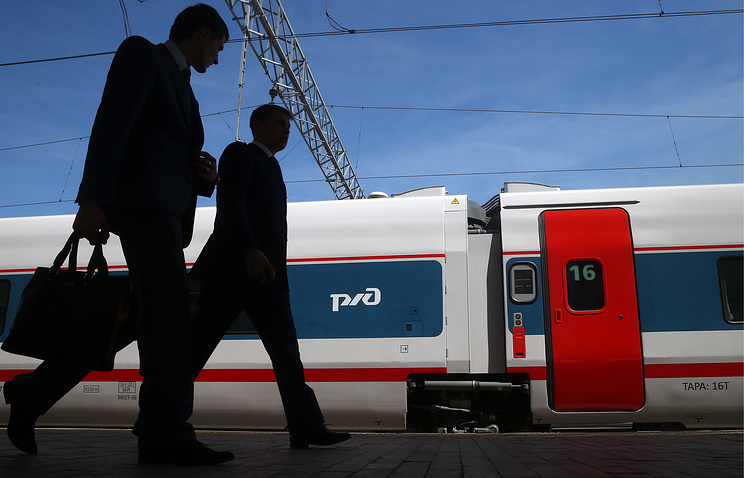
China will grant a 20-year loan worth 400 bln rubles ($5.9 bln) for the Moscow-Kazan high-speed railroad project, First Vice-President of Russian Railways state-owned monopoly Alexander Misharin said Friday.
“52 bln rubles (aimed for the section) through Nizhny Novgorod will be allocated to the equity capital (of the project company – TASS) and 250 bln rubles will be granted as a 20-year loan while the second section implies $1 bln (to be allocated) to the equity capital and a 20-year loan worth 150 bln rubles,” he said.
“The Chinese colleagues do not request obligatory submission of sovereign state guarantees as was formerly the case, which means that the concession grantor, or the state within the concession agreement, provides all obligations, which puts our Chinese colleagues to the rank of ordinary investors operating on the Russian market,” Misharin said, adding that China has also confirmed participation of the Silk Road Fund in the equity capital.
“The current task is to confirm liabilities of the Russian side. For doing this, an agreement is needed, a legally binding document, that is a decree on implementation of the project on the base of the government’s concession,” he said.
The total cost of the Moscow-Kazan high-speed railway line is estimated at 1.068 trillion rubles ($16.9 bln). The Moscow-Kazan section may later be extended to China, connecting the two countries across Kazakhstan. According to the Russian Railways, the length of Moscow-Beijing railroad will be 7769 km, travel time – 32.8 hours (four times faster compared to current 130.4 hours). The average annual passenger traffic is estimated at 195 mln people. The Moscow-Kazan High Speed Railway’s total length will stand at around 770 kilometers. Trains may go at a speed of 350-400 kilometers per hour, and the time en route between the two cities could be 3-3.5 hours against the current 14 hours.
The plan is to set up a special project vehicle, or a concession holder, within the project’s implementation, to focus on the agreement on construction of the Moscow – Nizhniy Novgorod – Kazan section.
Joint ventures for construction of the high-speed railroad
According to the official, China also plans to set up a few joint ventures in Russia for construction of the high-speed railroad.
“Currently a joint venture is being formed either with the Novosibirsk or Murmansk plants on switch production. The share of construction companies is being discussed,” he said, adding that their “expertise is required.”